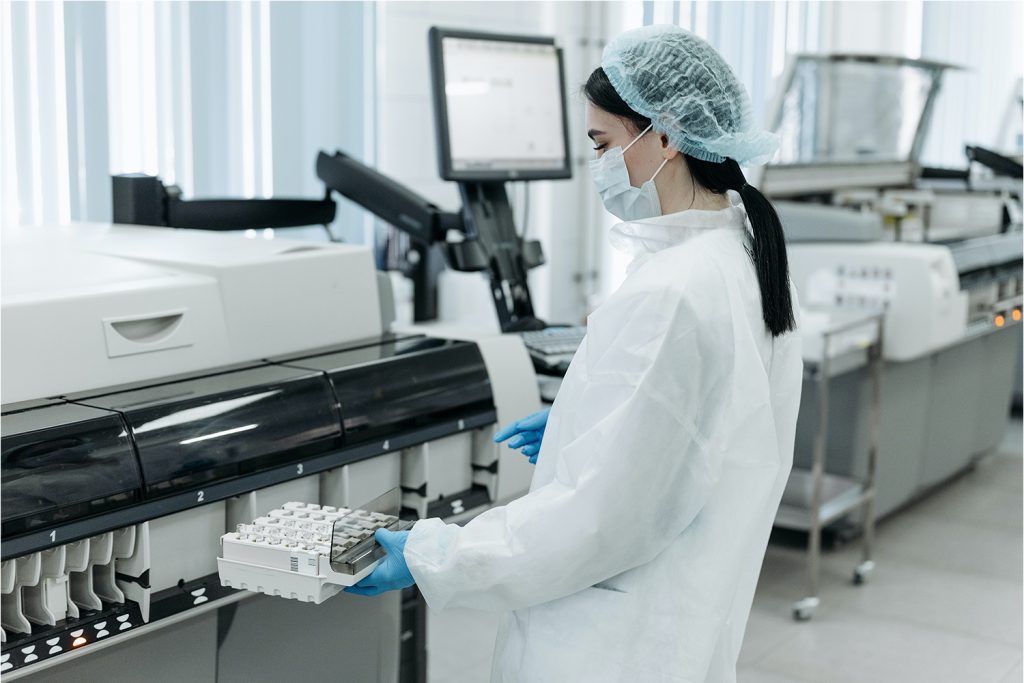The management of biological samples is a very important part of clinical trials. The so-called biological samples refer to the materials that need to be analyzed collected from clinical trial subjects in accordance with the requirements of the drug clinical trial protocol.
Common sample types include blood, urine, pathological sections, and others (sputum, cells, etc.) of subjects;
The management of biological samples covers the pre-collection preparation, collection process, sample transportation, sample testing and other processes, providing strong support for the test results.
Preparation before collection
- Preparation of consumables According to the requirements of the protocol, laboratory manual and biological sample management manual, it is necessary to prepare the materials required for sample collection in advance (collection tubes, labels, needles, etc.), and check the quantity, specifications, batch number and whether they are within the validity period. After confirmation, you can sign and receive them.
- Preparation of instruments and equipment Before starting, confirm whether the relevant instruments and equipment meet the requirements of the protocol, whether they have certificates of conformity and the latest calibration certificates. During the test, it is also necessary to pay attention to the connection of the calibration certificate time.
- Staffing Before the start, the monitor needs to train the corresponding collection personnel on the project plan, laboratory manual, and biological sample management manual, and the principal investigator shall sign and authorize. The authorization time of the personnel shall be consistent with the operation time.
- Process preparation Make an appointment with the collection personnel in advance, and communicate with the patient about the time and precautions of sample collection.
- 1) The day before the fasting blood collection, the subject should be informed in time that fasting and fasting time are required;
- 2) Before collecting urine specimens, avoid strenuous exercise, women should avoid menstruation, and the urine specimen should be sent for inspection within 2 hours;
- 3) Fecal specimens should not eat iron supplements, red meat, liver, dragon fruit and other foods before inspection to avoid false positives.

Collection process
According to the relevant requirements of the experimental plan process, the collection operation shall be carried out by the trained and authorized collection personnel.
The collection process shall record the corresponding collection form (biological sample consumables use record, biological sample collection form), and the collection personnel shall sign and confirm the date.
After the collection is completed, the samples need to be processed and packaged according to the laboratory manual and the biological sample management manual (such as centrifugal speed, centrifugal time, centrifugal temperature, standing time requirements, etc.).
After the packaging is completed, the subject information, center number, random number sample type, pathology number and other information need to be checked again for consistency; the collected samples are confirmed to be pre-processed according to the central laboratory manual.
Sample transportation
Take blood samples as an example. The research nurse collects blood samples from the subjects and hands them over to the CRC.
The CRC is responsible for centrifuging the blood samples, booking logistics, and temporarily storing the samples in the refrigerator.
Then, the samples are transported to the central laboratory for testing by logistics. Each transportation and handover is recorded.
During the whole process, the entire process from sample collection to transportation out of the center needs to be recorded to ensure the stability of the biological samples during the shipment and testing.
The documents generated after the shipment (mail records of booking logistics, biological sample delivery receipt, biological sample transportation logistics list, temperature records during transportation, thermometer calibration certificate) must be saved in the biological sample management folder.
Sample testing and tracking
After the sample is sent, the test results must be followed up in a timely manner. After the CRC has sorted out the relevant information, it will report to the researcher truthfully and assist in completing the evaluation and record-keeping work.
If there is a problem with the sample, the central laboratory will contact the research center, and the CRC will feedback the researcher and the research nurse to take corresponding emergency measures. The destruction of biological samples is often carried out in the clinical trial institution or the central laboratory entrusted by the sponsor.
The clinical trial institution can destroy the biological samples as medical waste after testing, and the destruction record of the samples needs to be collected.

No responses yet